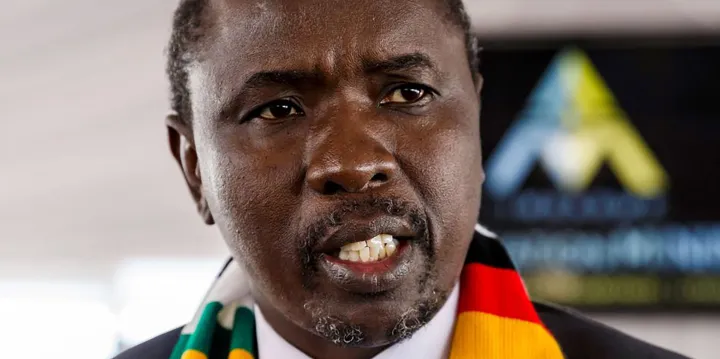NORTHERN EXPOSURE
Companies linked to Zim president’s controversial adviser Kuda Tagwirei score from multimillion-dollar divestments

Companies linked to controversial Zimbabwean business tycoon Kuda Tagwirei, an adviser to President Emmerson Mnangagwa, this week emerged as the biggest beneficiaries of multimillion-dollar divestments by two large foreign investors.
Two weeks after its representatives met Zimbabwean President Emmerson Mnangagwa on the sidelines of the World Economic Forum in Davos, Lafarge Cement announced last week that it had secured a buyer for its 76.45% stake in Zimbabwe’s second-largest cement manufacturer.
The sell-off was no surprise to the market as Lafarge’s holding company, Holcim, had announced in January that exiting the Zimbabwe market could be next in line after similar divestments in Ghana, Brazil, Malawi and Zambia.
Five bidders were shortlisted by Lafarge, including three Chinese companies, an unnamed African billionaire and a Zimbabwean firm, Fossil Mines.
From the list, the Chinese company Huaxin Cement was widely reported as the front-runner to buy the listed Zimbabwe cement maker after it bought Lafarge Zambia and Lafarge Malawi last year.
But markets were shocked on Monday last week when Lafarge announced that it had entered into a binding sale agreement with Fossil Mines, a company run by Obey Chimuka, a business associate of Tagwirei.
An investigative report on Tagwirei’s expanding business empire in Zimbabwe, released by The Sentry in July 2021, revealed the close business links between him and Chimuka, with the latter having sat on boards of businesses linked to Tagwirei such as Sotic International and Landela Mining.
Fossil Mines, which has no track record in manufacturing, has been a beneficiary of multimillion-dollar public works contracts including road infrastructure projects such as the Beitbridge Highway and the Mbudzi interchange in Harare.
Last year, Fossil bought a 4.4% stake in Great Dyke Investments (GDI), a $3-billion platinum mine project that was until this week jointly owned by Russia’s Vi Holding and Kuvimba Mining House, a company heavily linked to Tagwirei.
As news of the major “triumph” by Fossil to acquire Lafarge swept through the markets in Harare on Monday, Vi Holding announced that it was pulling out of GDI and its 47.8% stake would be ceded to its Zimbabwean partners, Kuvimba and Fossil, again.
GDI had planned to start production in 2021 with output reaching 860,000 tonnes per annum to become Zimbabwe’s largest platinum producer.
But the company has been struggling to raise the $500-million required for the first phase of the project, in part due to the involvement of sanctioned Tagwirei and the Russians.
“The decision to exit the project is in connection with global sanctions of Western countries against Russia, which naturally applies to Russian investments abroad,” the company said.
The Zimbabwean government claims it controls Kuvimba, but its assets, which include gold, nickel and platinum, are the same as those owned at least until 2020 by Sotic International, a company linked to Tagwirei, who has been sanctioned by the US and UK over corruption allegations.
The Zimbabwe government claims Tagwirei is not involved in Kuvimba, with the state holding a 65% stake and the remainder belonging to Ziwa Investments, another privately registered Zimbabwean company.
But questions still linger about how the government funded the purchase of $2-billion worth of mining assets that were until December 2020 owned by Tagwirei’s Sotic International.
Some Zimbabwean government and mining industry officials said Tagwirei and the government created Kuvimba to shield the businessman’s mining companies from the US and British financial sanctions that would have crimped their operations.
South Africa’s Impala Platinum, which until 2006 owned the concession before relinquishing it under pressure from Robert Mugabe, had been courted to join the GDI consortium, but turned down the offer over a lack of transparency in the shareholding structure and for fear of being implicated in the sanctions.
“The face of Tagwirei in the GDI picture has affected access to funding for this mining project at a time when GDI requires additional capital injection. The lack of transparency on who is the owner of Kuvimba Mining House has negatively affected efforts to attract a new funding partner for the Darwendale mine.
“Investors fear that Kuvimba Mining House is being used to mask the face of the military in the project,” reads a recently released report by a non-profit, the Centre for Natural Resource Governance. DM


















 Become an Insider
Become an Insider
Comments - Please login in order to comment.